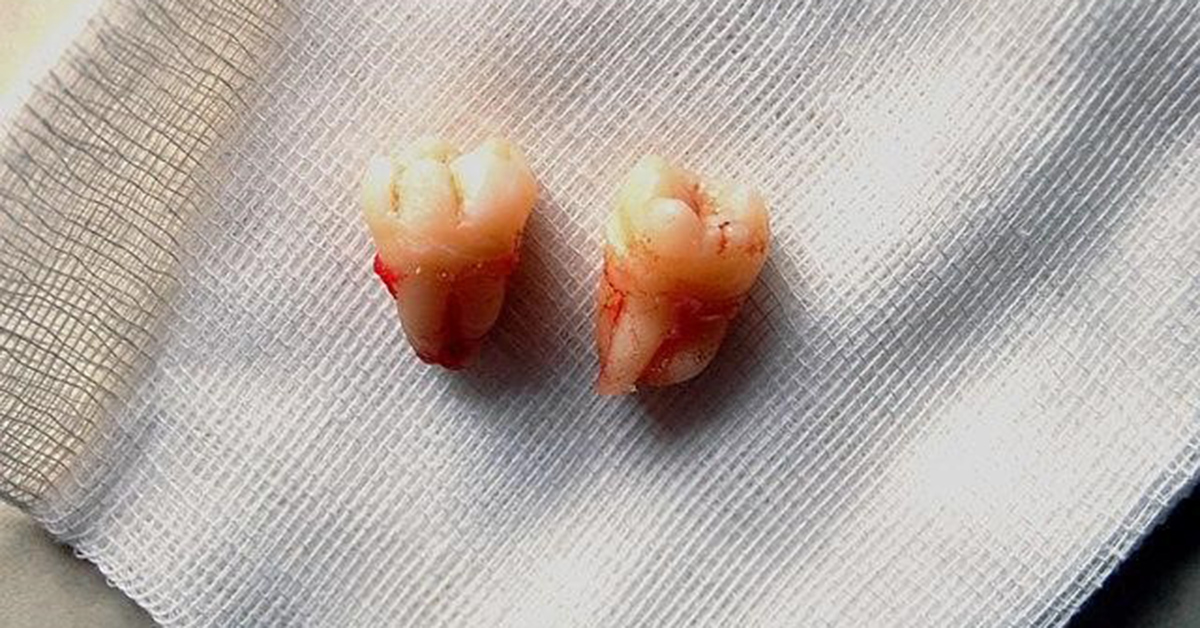
Wisdom teeth are the final set of molars that appears on people usually between 17 and 22. They are usually molars that cause more issues than any other teeth present in your mouth. Each year, millions of people take their wisdom teeth away because of a number of concerns like increase in the presence of infection in mouth, bone loss and damage to neighbouring teeth. There is also a good chance that there is not enough room to brush or floss due to the presence of wisdom teeth.
How do you know about the presence of wisdom teeth?
Your dentist would be able to gauge the presence of wisdom teeth with the help of an X-ray result. There are also other common symptoms that usually denotes the presence of wisdom teeth. Some of them are:
- Presence of swollen/bleeding gums.
- Tooth and jaw pain.
- Bad breath.
When you encounter these visible symptoms, you ought to consult a dentist to decide on the next steps and nip a problem in its bud before it gets bigger.
Pain relief:
While your doctor would advise on whether or not to remove the wisdom teeth, here is what you can do meanwhile to assuage the pain present in your mouth:
- Numbing gel: Available in your nearby drug store, they help reduce the pain in your gums. Numbing gels can be applied directly on your teeth. Make sure that you read the instructions present thoroughly though before applying it. You will get the best results when you dry the affected area before applying the gel.
- Ibuprofen: Usually found in many drug stores, they are very effective pain relief pills. Ibuprofen also helps reduce inflammation in your mouth.
- Warm Salt Water: Salt water is well known for its antibacterial properties. Gurgling warm salt water in your mouth for a considerable amount of time and then spitting it out will definitely help in assuaging the pain.
- Ice pack: Ice Packs help immensely in reducing the swelling and can give you relief from the pain in your mouth and gums. You can either use a standard commercially available ice pack or put ice cubes in a towel and apply on the affected area. Ice Packs are also a good way to reduce inflammation.
- Cloves: A natural way to treat pain in your wisdom teeth, clove oil is a very effective treatment for a variety of gum diseases due to its well known antiseptic properties. Putting clove oil in a cotton ball and directly applying it in the affected area in mouth will help assuage the tooth pain.
- Peppermint: A homemade pain relief, peppermint contains oils that are known for its antibacterial properties. Use a cotton ball and soak it with peppermint before applying it on the affected region. Peppermint is also used sometimes for rinsing your mouth.
- Aloevera: Known for its natural properties, applying aloe vera gel on the affected region in the mouth would not only reduce inflammation, it would also keep the region cool and help you relax.
- Strong liquor: Strong liquor is a good disinfectant that will help stave off germs. Bourbon, brandy and whiskey in particular help assuage the pain if applied in the affected region.
- Red/Yellow Onions: The bitter the onion, the better. Raw Chewing of red and yellow onions will help the juices secreted reach the affected region directly, thus reducing inflammation in the targeted region.
- Garlic: Garlic is a very effective way to help reduce the pathogens and germs present in the affected region. Garlic could either be crushed and consumed or applied via a paste.
- Baking Soda Paste: Baking soda can either be applied directly or by making a paste out of it and putting it in the applied region.
- Tea Bags: The presence of tannin in your tea helps in fighting inflammation and swelling. Dip the tea bag in water and wait till it cools down to remove it and apply on the affected region in your mouth.
Things to avoid:
Here are the food items and things to avoid when you have wisdom teeth pain:
- Sugary foods and drinks like coke.
- Smoking.
- Not brushing your teeth regularly due to pain.
- Not staying hydrated.



